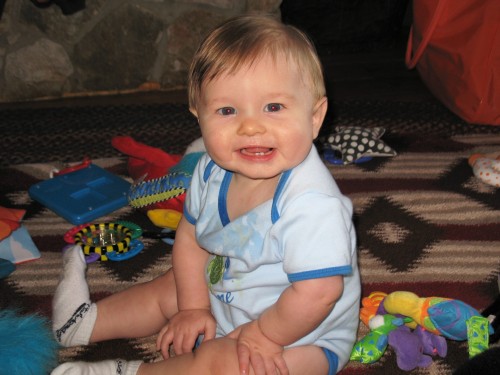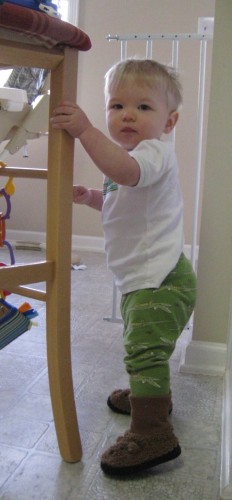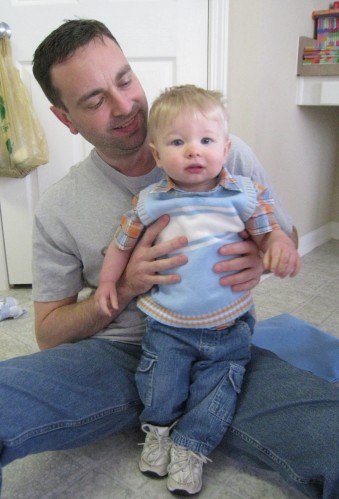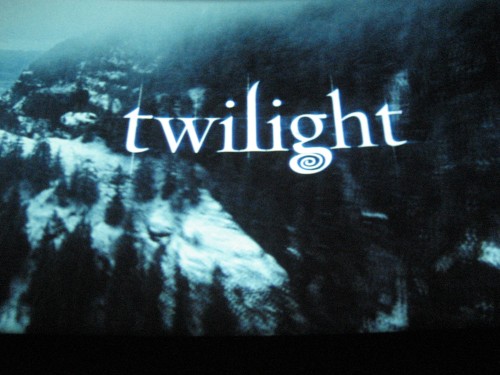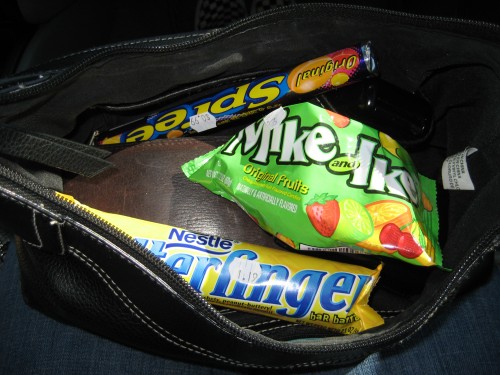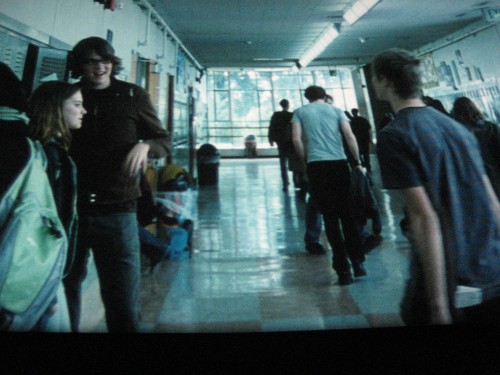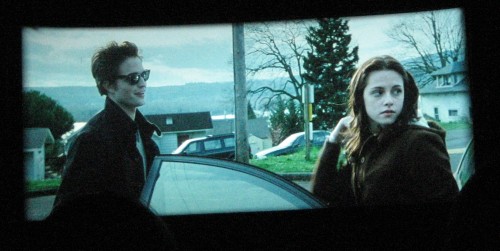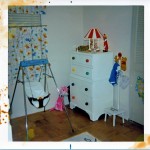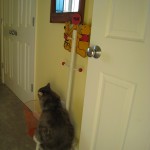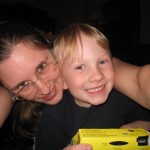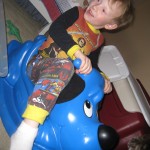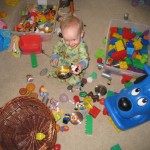Too busy to read Buy, Buy Baby? Well, I highly recommend it because it’s amazing to see your own self pinpointed so well as a demographic to be marketed to, but in case you can’t get to it, I’ll give you her conclusions in a nutshell.
First, no TV is good for children before the age of two. Any talk about TV being educational for babies is either misguided, misleading, or outright deceptive. There have been no studies that have proven the effectiveness of “educational” TV for children younger than toddler age(3+). Babies are not, in fact, toddlers. There are huge developmental milestones between babies and toddlers, and one of those differences is in the way they process symbolic thought. In order to watch TV and understand what’s going on, you must be able to at least in part use symbolic thought.
But you’re thinking, my little one absolutely loves those Baby Einstein videos! Think again. She is just demonstrating the “orienting response“. It’s basically the response we have when being presented with novel stimulation. Whenever your child is glued to the screen, he’s not in rapt attention because he likes the content. Babies can in no way understand the content. Symbolic thought doesn’t begin to build until a few years into a child’s life. He is glued to the screen because he can’t help himself – the orienting response paralyzes him. (It actually happens to adults, too.)
Studies have also shown that children exposed to even just background TV show more problems with focusing, attention deficit, and obesity. Introducing your child to TV as a babysitter is so tempting, especially when they seem so “focused” and interested in it. However, it’s probably not best for your child in the long run. The American Academy of Pediatrics recommends no screen time for babies under two, and Thomas’s conclusions underscore that recommendation.
The other big topic that Thomas tackled was the idea of selling to babies. She reminds us that while young children who watch “educational” television cannot learn developmental milestones from the programming, they can learn to love the story’s central characters. Toy manufacturers are legally prohibited from directing advertising at babies and children, because they have no ability to understand the power of persuasion and therefore are defenseless against advertising. Toy companies get around this by having their own hired child development expert endorse their toys as “educational.” At the same time, they also work with powerful licensing departments to embed their brand, embodied by Elmo or Dora or the Teletubbies, into every segment of the market imaginable. Thus Elmo ends up on clocks, toothbrushes, bags and backpacks, TV and videos, sheets, sofas, books and more. The end result is that you begin to raise a very brand-consciuous consumer who will ask for a product by brand-name before the second birthday.
Children do not need special branded or educational toys to learn. Basic, sturdy toys that inspire imagination and creative play, coupled with your interaction, love and attention, is all that is necessary to aid your child’s healthy development. Spend time with your children doing Nothing. Not nothing. But a purposeful Nothing. Spend time with your kids, playing, interacting, loving, watching. That’s all they need to be healthy and smart.
